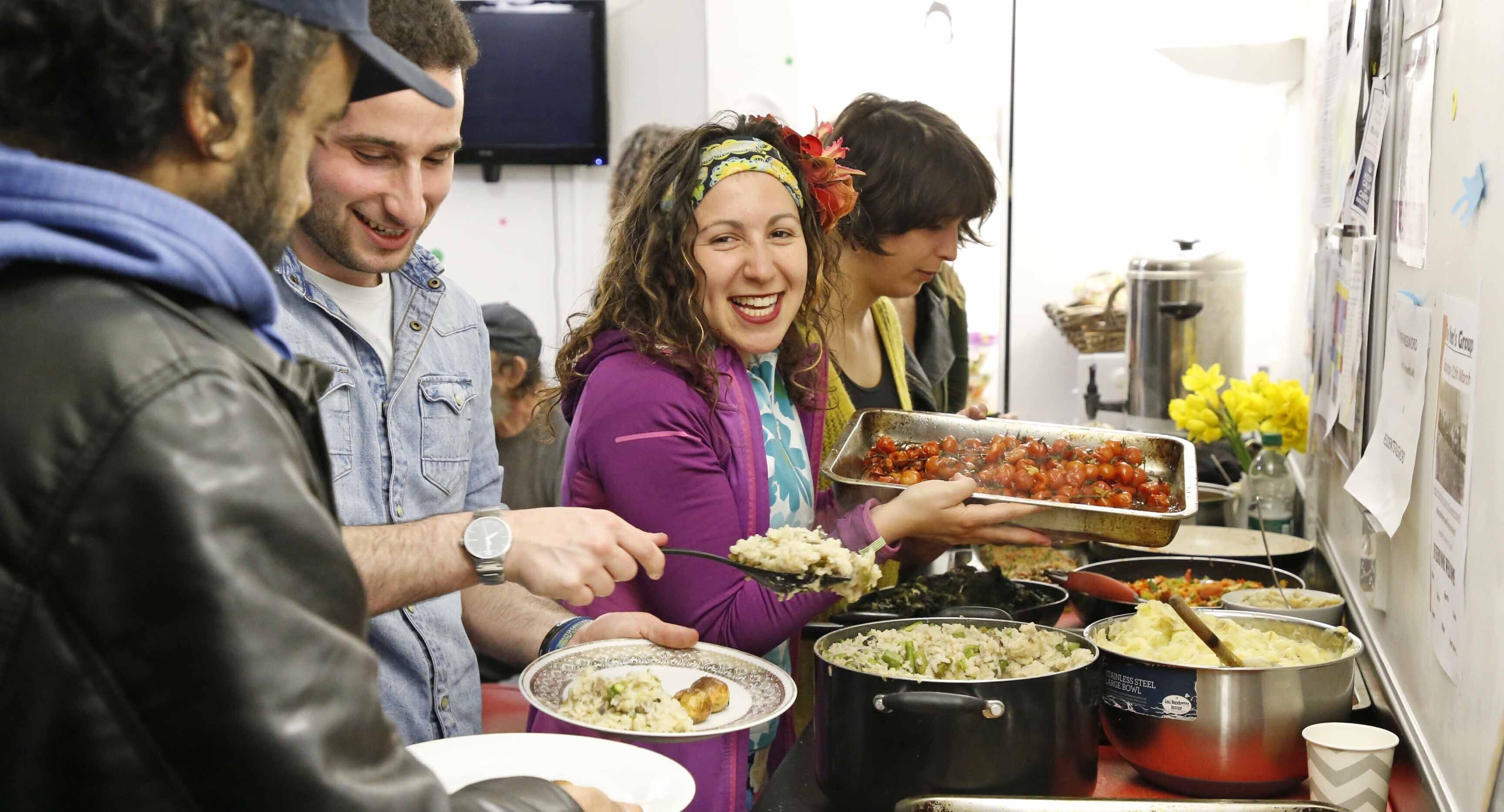
This is an ode to the small, local charity – the community choir boosting older people’s wellbeing, the youth club supporting local teenagers out of knife crime, the domestic violence refuge teaching career and life skills. There are over 25,000 charities in London alone, with the very smallest doing the incredible, every day, for five BIG reasons:
1. Small charities are trusted members of their community
Our communities, in London and across the country, need urgent action and support from our government. But while they wait for that to come, they will turn to people they know and trust. Small charities are so well-embedded in their communities you may not even realise they are charities in the first place. They are part of the furniture, part of the family and, in many cases, the first place people go when they are in need.
In our recent cost-of-living survey, 73% of our small charity partners told us they had already seen their demand increase in the last few months. 8% of them said demand had increased by over 100%.
Often we are the only support services that these girls have contact with as we meet the worsening failure of social care, but we are very stretched to capacity and are worried about meeting everyone's needs.Sister System
We are seeing a huge increase in clients seeking advice and representation to obtain benefits, rent and rate relief.Teviot Action Group
2. Small charities have the expertise
Local organisations are experts in their field and respected in their community, often with lived or peer experience of the issues they are working to tackle. This means the charities, social enterprises and groups that spring from the communities they’re trying to help often have a deep understanding of the gaps that need filling. In short, they know what their community wants and needs, and they know how to get it to them.
Small charities are present and embedded in the community, they have hands on experience and knowledge of the community needs and how these can be met. Often they have lived experience and are from the communities they are trying to help.Treat Me Right CIC
3. Small charities know how to adapt – quickly
For the small charities and organisations we fund, the pandemic was a period of intense strain on their services and COVID-19 grants were a lifeline. Their response working under extreme pressure was humbling and inspiring in equal measure. Despite all the challenges, as demand for their vital services increased, so did their determination to build positives from the situation: that’s why, when lockdown first struck, they sprang into action – transforming their offices into food banks and creating essential parcels tailored to their community’s needs. 32% of The London Community Foundation’s COVID-19 grants went to food. Exhausting as this was, they can be proud of what they achieved, and the COVID-19 experience will stand them in good stead for when the next crisis comes along.
We are thinking of providing 2 meals per week for some of our women.Ocean Women’s Association
Due to the rising cost of living, we have cut the cost of lunch from £2.50 to £1.50 and all meals are now free to children. This has cost HNCP £13,000 more each year.Highgate Newton Community Partners
We are having more food available in the office when people come in (fruit and biscuits) and are buying meals for clients on occasion as well.Toucan Employment
4. Small charities make their money go further
38% of the charities we surveyed have fewer than five members of full-time staff and rely heavily on volunteers from the local community. This model often works well, as it means they can channel their resources where it is needed most: on essentials such as food and toiletries for their beneficiaries, or their energy bills, so they can act as a community hub or ‘warm bank’. As an open and trusting funder, we are committed to making our funding as flexible as possible – so that charities have the freedom to use it as they see fit.
Small charities have expertise and capacity, because they put in a lot of unpaid hours, and because they are passionate about the social issues they try to address.Treat Me Right CIC
5. Together small charities have the solutions
Small charities already have the solutions and, by working together, they have the power to bring about change. The basis of many of our funding programmes is collaboration – funded organisations working together to best respond to their communities’ challenges. We saw it with COVID, which brought them together around one objective and increased shared learning across the sector. But we are also seeing it within our funding programmes, where charities are encouraged to network and learn as a group. This not only builds a more robust community response for their beneficiaries, but also a support group for fellow charities.
The network of other LCF charities has been extremely encouraging in difficult times.One of our VAWG Grassroots Fund partners, Streetlight UK
As London’s community foundation, it’s vital we shine a light on the realities London’s small charities face as we plunge deeper into the cost-of-living crisis. While these five reasons are all powerful, the effects of the crisis risk overpowering them. The fantastic qualities these small charities and the value they bring to us as Londoners is at risk if they are forced to close their doors simply because they cannot afford to pay their bills.
A donation to our Together for London appeal will provide direct support to smaller, local, community organisations who are providing vital services to people and families in your local communities this autumn. You will help them source items like emergency food, packages of essentials items, and sessions to support people’s mental health and money worries. And, importantly, you will help your local community centre or charity keep its lights on.

